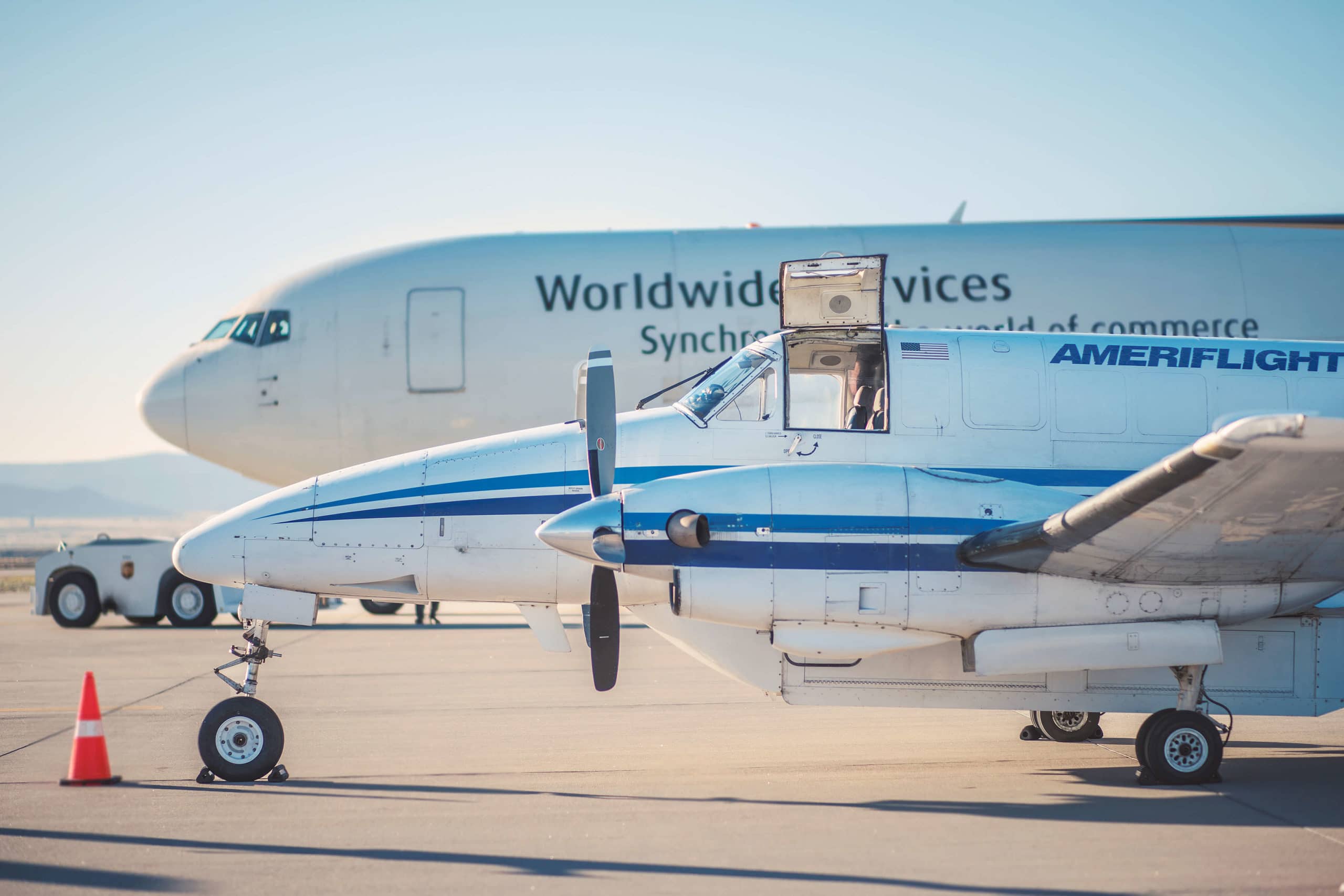Merlin Labs has reached an agreement with Ameriflight to equip the cargo airline’s fleet with autonomous and semi-autonomous flight capability. By offering access to Merlin’s enhanced technology, the partnership will allow Ameriflight to capitalize on long-term growth opportunities.
The nation’s largest Part 135 cargo airline, Ameriflight provides regional cargo aircraft services for overnight express carriers such as UPS, FedEx, and DHL. With this partnership, Ameriflight will add more experience and capabilities to its aircraft through Merlin’s technology, complementing its current pilot makeup. Ultimately, Ameriflight hopes to future-proof its aircraft with early implementation of autonomous capabilities, ensuring the company will be nearly ready when that form of flying is industry-approved and allowing for seamless customer retention.
“We believe Merlin’s technology is not only the furthest along, but also the most applicable to what our customers need,” said Ameriflight President and CEO Paul Chase. “It will potentially allow us to provide autonomous or semi-autonomous flight at a cost of added deployability that we think works best for our customers relative to other options.”
Merlin is creating sophisticated software and hardware that fulfill the functions of a human pilot. The company has flown hundreds of takeoff-to-touchdown missions, performed thousands of simulated test hours, and integrated its platform into four different aircraft types (from single-engine to complex, multi-engine aircraft). In September, Merlin became the first company to reach an agreement on an approach for the certification of aircraft autonomy.
Merlin’s “crawl, walk, run” approach to deploying autonomy — and commitment to safety — resonated with Chase.
“Today, a pilot might come to us with a thousand hours of flight experience,” Chase said. “With the processes that Merlin uses to certify its technology, we’re putting the equivalent of much more experience into the cockpit on Day One. You don’t have this learning curve that pilots need to go through, and that lowers the overall risk profile to the airline. That’s a win for our pilots, our customers, and our company.”
According to Chase, the industry’s pilot shortage is a major driver for the partnership with Merlin. Finding skilled pilots in the current environment is difficult enough, he noted.
“That’s just a reality for our growing business,” Chase said. “It’s imperative that we complement — not replace — our existing team of fixed wing pilots with autonomous pilots. We have ample opportunities for growth in front of us with the increased level of e-commerce, disruptions in the supply chain, et cetera. But we can’t capitalize on that in any significant way unless we solve this staffing problem in a scalable and cost-effective way.”
Another key driver for Ameriflight is cost savings. The airline’s current aircraft are a good fit for its customers when it comes to size and rate. Updating the existing fleet with next-generation technology will allow Ameriflight to pair world-class technology with best-in-class pricing.
“Merlin is designing a solution to allow our existing fleet to become autonomous rather than requiring us to upgrade our fleet, which would come at a very high capital cost,” Chase said. “By using the aircraft’s existing functionality and enabling us to update the cockpit and avionics equipment, Merlin is making it possible to extend fleet life at a relatively affordable cost.”
“Having recently announced our first-in-the-world certification basis, we really have to focus on how to bring our system to the market in the short term,” said Matthew George, Merlin Co-Founder and CEO. “Partnering with Ameriflight supports this goal while also giving us a great deal of credibility in the commercial cargo space.”
